
Dunedin has been growing and the city council has boosted spending to fix up infrastructure and enhance amenity.
Uncertainties include what exactly the Dunedin City Council’s role might be after Three Waters and resource management reform, and how best to emerge from the shadow of Covid-19. Big issues for the city include how it should continue to respond to climate change, how the council’s relationship with mana whenua might develop, the future for Dunedin Railways and the Taieri Gorge track, and what should be done to foster performing arts and live music. Changes have been happening in Dunedin’s transport network and we asked candidates what should happen from here.
Question 1: How might Dunedin’s transport network best be set up for the future?
Question 2: What are your goals and priorities for council?
PETER BARRON
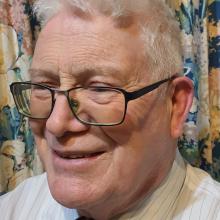
Age: 71
Occupation: Pharmacist, The Radio Pharmacist
Question 1: I favour George St being a pedestrian precinct that is eventually fully covered. We need better public transport with smaller, more frequent buses on flexible routes such as Timaru are trialling. The one-way street system must be retained but shifted so that it runs on the harbour side of the new hospital. All heavy traffic should by-pass on the harbour-side of the railway line and be shifted one block north to Frederick St.
Question 2: My vision is for a city that learns from the past and looks to the future. I am committed to generational investment to build a better Dunedin for a better tomorrow.
My key priorities: Mana whenua and Te Tiriti; Residents and rate-payers; Climate change and the environment; Community housing and poverty; Roading and infrastructure; Te Whatu Ora and the health sector; The university and education sector; Business and the commercial sector; Regional government; Central government.
DAVID BENSON-POPE

Age: 72
Occupation: City Councillor
Question 1: Continue the upgrade of the whole network to cope with increased demand from growth in population and vehicles. Ensure improvements for all users.
Implement the agreed parking management plan and heavy-traffic bypass, improved (DCC controlled) public transport and faster electrification of the bus fleet, and the introduction of a free inner-city bus loop.
Continue the improvement of our streets, especially in the CBD and other centres, to make them more attractive and safer for everyone.
Question 2: Invest in the future by giving effect to the city’s Strategic Plan and Spatial Plan to ensure development occurs in the most appropriate locations and our quality agricultural soils remain protected.
Promote policy that meets the needs of everyone not the interests of a few. Make careful decisions based on fact. Support the vision and commitment needed to meet challenges of climate change. Continue protection of our heritage buildings. Renew support for the physio pool.
JOY DAVIS
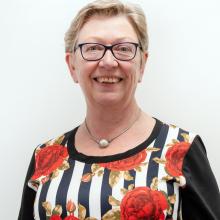
Age: 66
Occupation: Regional co-ordinator Otago Neighbourhood Support
Question 1: An efficient, affordable, accessible, and environmentally friendly transport network is essential for residents’ social connection and wellbeing.
One supporting different travel modes, pedestrian spaces and cycling options. One where residents may experience, across the city, parks and recreational facilities. One that contributes to a safe and vibrant city. Ongoing engagement between the ORC and DCC and Government must continue.
The goal? One council to be responsible for the entire transport service, determined by evidence presented.
Question 2: In my community work, partnering with others has proven the value of effective communication, strong relationship building and growing our partnership with mana whenua.
Residents’ social wellbeing, and the role of efficient public transport, safer pedestrian spaces, cycling options and innovative housing initiatives, are priorities.
I support place-based community development, a proven model, local people providing local solutions.
I will make evidence based decisIons, to build a sustainable future for a progressive vibrant city.
RACHEL ELDER
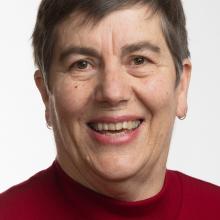
Age: 66
Occupation: Dunedin City Councillor
Question 1: I believe that as a city we need to continue to work with all stakeholders to create comprehensive transport plans for all modes. A public transport plan, walking and cycling plan, a vehicle plan, a parking plan and a commercial and heavy traffic plan. The Dunedin Tunnels Trail is an example of a cycling commuter route that could have a big impact.
Question 2: I am keen to see Dunedin have an amazing outdoors offering for the health and wellbeing of our communities with an interconnected network of tracks connecting us to nature and adventures and connecting our communities.
I believe we need to grow our housing so that everyone can afford a dry, warm home.
We need to invest in infrastructure in South Dunedin and our coastal communities for the impacts of climate change and increased rainfalls.
CHRISTINE GAREY

Age: 66
Occupation: Deputy Mayor
Question 1: Functional and innovative choices/services are key, especially a multi-purpose, efficient, accessible, affordable public transport system; no matter who runs it. Encouraging people, who can, to get out of their cars; resulting in less busy roads and more parking for those who can’t.
Also: Centre-city bus-loop; Connected/safe cycling network; Bike hubs/storage; Safe walking routes; Micro-mobility options; Innovative technology for wayfinding parking; Plenty of mobility parks; EV charging stations (cars/bikes); Well maintained, efficient roading network; Car/bike share schemes/incentives.
Question 2: Address climate change; work towards zero carbon goals, including waste minimisation. Increase the stock of warm, dry, accessible homes. Support the arts. Improve transport options. Further protect and enhance our natural and built environment. Continue to facilitate significant investment; public and private. Continue to lobby for an Immigration NZ presence. Finish projects we’ve started — the Peninsula Connection, Central City upgrade, infrastructure renewals, CODE.
All in the context of a deepening relationship with mana whenua.
KEVIN GILBERT
No response received before deadline.
NATHAN GORDON

Age: 42
Occupation: Technician and manager
Question 1: Dunedin’s transport system requires a significant re-think followed by quick action around the city and the greater area as a whole, not only considering one area at a time as has been recently. We need to consider requirements now and into the future. We should be factoring in all aspects including movements between various areas and services (such as retail, transport hubs, community services, education, hospital), parking, public transport, motor vehicles as well as cyclists and pedestrians.
Question 2: Dunedin City Council needs to be more open to overall progress, consultation and feedback in many areas around the city as a whole. Council members are there to listen to and represent the Dunedin public, the residents, business owners, students, visitors and all who enjoy Dunedin city and surrounding areas. I aim to ensure this is all a priority moving forward. Feel free to contact and hear more from me online at nathangordon.nz
DOUG HALL JR

Age: 39
Occupation: IT
Question 1: The running of the buses should be taken over by the DCC and run as a service to the city, as the ORC are doing a terrible job. Free bus loop is obvious, but again ORC. George St should stay two-way as it’s too early for that type of development and anything that hurts business in Dunedin should be stopped. We should also get the trains ready for when the tourists come back.
Question 2: Increase inner-city parking; Upgrade the Dinosaur park to something stellar; Get the physio pool working, or upgrade part of Moana pool instead; Build and renovate city council flats which will pass the Healthy Home Standard (double glazing, heat pumps); Get our recycling rates up "Reduce, Reuse, Recycle" should be our mantra; Unlock land for housing.
The list goes on, find out more at doughall.nz
CHRISS HAMILTON
No response received before deadline.
VERONICA JACKMAN
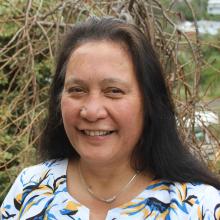
Age: 58
Occupation: ODT delivery and after school programme co-ordinator
Question 1: My heart is with the people; thus, issues around transport policy must be democratic and reflect consultation. Solutions must be efficient, timely, useful and economical. For example, the last eight months of inner city-wide roadworks. This has caused major disruption to business owners and the public and has not enhanced the city’s vibrancy. I would have made sure that the roadworks were staggered in a manner not to cause disruption.
Question 2: I find the Council budget blowout disturbing and a burden to the ratepayer. Debt is forecast to increase to $440.3million in the 2022-23 years. A 6.5% rate increase has not been popular in this economic climate. If elected, I would be looking for prioritisation, and some projects may need to be temporarily shelved, such as cycle ways and Park & Ride projects. Voters want to be listened to and to have a responsible, transparent council.
MARITA JOHNSON

Age: N/A
Occupation: Kaitiaki/nursing, carer
Question 1: Having a loop route from Mosgiel to Dunedin, Bus Hub, electric buses in inner city, tram line from High St to Gardens. Train system from Mosgiel to railway station, if feasible.
A projected 141,606 people by 2048 — we need to look into this investment now so there is a system that works.
Safe roads, Park & Ride, areas to park your car then ride a bus, train, or cycle. Being subsidised for using the public system.
Question 2: Better infrastructure. Better parking in general, for the elderly, disabled, having an area for the workers to park at the New Dunedin Public Hospital. Curtailing unnecessary spending. Three Waters — no to a private investment, water belongs to the people of Dunedin.
Responding to changes, and demand public health and environmental outcomes. Fiscal management, letting the people of Dunedin know what is being spent on consultation purposes. Climate change. Making coastal areas, South Dunedin, a major priority.
RICHARD KNIGHTS

Age: 50
Occupation: Real estate salesperson
Question 1: A lot of what the Dunedin Transport Network needs is already earmarked as part of the Dunedin City Integrated Transport Strategy. For example, the Harbour Arterial Route upgrade will provide an efficient route bypassing our CBD and relieving central city congestion. I would like to see Dunedin fully responsible for public transport, offering safe, reliable and viable alternatives to travelling by car for those that want to, are able to or have no other options.
Question 2: My priorities for council are:
Ensuring diversity and inclusion; Investment in community housing; Effective community engagement; Otepoti’s existing Zero Carbon 2030 goals and waste reduction initiatives; Improved accessibility to services and venues for our disabled; Climate change adaptation and protecting our coastline and low-lying areas such as South Dunedin; Continued improvement of the CBD to encourage a thriving, people-focused city centre for everyone; World class public transport options as part of an integrated transport strategy.
MARIE LAUFISO
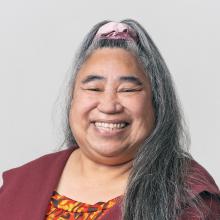
Age: 59
Occupation: DCC Elected Member
Question 1: Our transport network must be centred on a public transport service that is free and can operate efficiently and safely.
The DCC’s Climate Change Emergency (2019) declaration in part-backed the tamariki/children, tai tamariki and taiohi/young people who went on strike.
Many of those taiohi intend to never own a vehicle. Further, many of our elderly and other South Dunedin and hills suburbs residents rely on buses as their primary means of getting about.
Question 2: My long-term goals and priorities are that the DCC operates in ways that foster these city-wide outcomes:
1) Every child and young person knowing that the city has their back. 2) No homelessness of any kind. 3) Leadership at a governance level has enhanced and supported much greater involvement in council’s work by Otepoti Dunedin’s ethnically-diverse communities.
MIKE LEE

Age: 60
Occupation: N/A
Question 1: Bring back all user-friendly easy-access traffic flow to all Dunedin roads. Remove all unnecessary judderbars, particularly Maori Road. Reopen all two- way lanes on George St, remove unnecessary traffic light, pedestrianising red arrows, reinstate all removed car parks, especially around the CBD and hospital etc. Reduce or remove all unused cycle lanes.
Question 2: Reinstate and maintain as many as is possible of Dunedin's lost iconic features. Restore New Zealand’s oldest public toilet, which would be a great accessible tourist attraction with easy parking, and build additional unisex toilets nearby. Get the large high-rise city digital clock in the Exchange restored and going again. If funds are available, further Dunedin features, such as the regularly held Dunedin motorcycle street Road Races around the Oval and Carisbrook areas or nearby.
CHERRY LUCAS

Occupation: Self-employed and mother.
Question 1: The one-way system needs to stay. The purpose of a transport network is to move vehicles efficiently from point A to point B. Our system is often congested now and I don’t believe any changes to the one-way system will improve traffic flow. Review the heavy traffic bypass and St Andrew St crossing — with the new hospital build, is this intersection going to cope? Address car-parking, everyone says there isn’t enough.
Question 2: Back to basics. Get the council to listen to what the community wants, restore people’s faith in the council. Review operational and capital spending, rates increases shouldn’t be more than inflation. Fight Three Waters, we want what’s best for Dunedin. Restore people’s satisfaction in the city by fixing the potholes, removing weeds and cleaning up the city. Help make Dunedin a city where people are proud to live, do business, work, study and visit.
CHRIS MCBRIDE
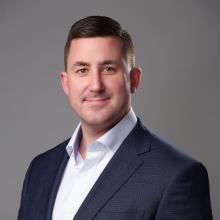
Age: 34
Occupation: Operations manager
Question 1: We need to rethink the way we move through the city and incentivise public transport. Our bus service should be adapted to suit our variable patronage and we should look to such systems as on-demand public transport for off-peak periods. I would support free bus services with such changes. We must not punish car use and the best way forward is to enhance all forms of mobility to suit our individual needs.
Question 2: Rebuild the trust and support of the community by focused action on the areas which are of the greatest concern. Put a halt to future vanity projects and scrutinise council spending. Continue to push back on Three Waters, increase car parking as soon as possible, improve our recycling infrastructure with better sorting technology and engage with the business community to understand where the council can best affect change to support growth and participation opportunities.
ROBYN McLEAN
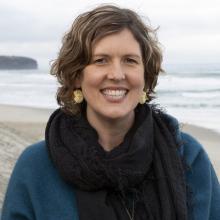
Age: 39
Occupation: The South Dunedin Community Network manager
Question 1: Giving people more transport options across the city, resulting in safer and more environmentally friendly, effective transportation for everyone.
Better, more extensive bike lanes/storage across the city.
Ultimately, Dunedin buses controlled by DCC, until then push for better routes connecting community hubs.
Find a sustainable transport solution for mass numbers getting to hotspots around town — Edgar Centre, stadium, Moana pool.
Improving options results in less cars on the road and more carparks for those cars.
Question 2: To bring fresh energy and perspective into the council. To approach everything with three lenses; Community, equity and environment.
As I’m currently manager at The South Dunedin Community Network, I want to bring my understanding of issues affecting our communities into council. To continue building strong, resilient communities, as well as making decisions that result in equity in outcomes for everyone who lives here, and for all nature that surrounds and lives among us. robynmclean.co.nz
BRUCE MITCHELL
No response received before deadline.
MALCOLM MONCRIEF-SPITTLE
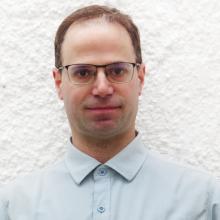
Age: 47
Occupation: Jedi
Question 1: Transport policy in Dunedin, like much else, is being driven by elitist technocrats and unelected bureaucrats operating to UN and WEF agendas. Our mayor Aaron Hawkins is on the Oceania Regional Executive Committee of ICLEI, working to transform urban areas into a dystopia. The people of Dunedin expressed through a petition and a majority of submissions that they would have preferred George St to remain two-way. The next threat is to the one-way system.
Question 2: Democracy itself is under threat in New Zealand. Our own Government is spending millions on propagandising its own people. The mainstream media have become a Pravda-like state media, crushing dissenting views. The Three Waters proposal will see $3billion of assets removed from local control. The He Puapua report is a blueprint for separatism and 50:50 co-governance in New Zealand by 2040. And our current councillors are mostly acquiescing to this scandalous state of affairs.
CHERYL NEILL

Age: 60
Occupation: Primary school teacher
Question 1: It is essential that Dunedin’s one-way system is retained. Easy access in and out of the city is paramount for the effective movement of transport.
Dunedin needs to move away from big diesel buses and move towards efficient smaller electric buses providing a loop bus service around the city. There needs to be joint governance between the DCC and the ORC working together to encourage more people to catch the bus. An annual bus pass could help with this.
Question 2: My goals are to focus on the communities. Positive community consultation and positive outcomes.
Priorities are sensible spending with ratepayers’ money, with the focus on infrastructure and budgeting within the city’s financial means.
Parking solutions need to be addressed, attainable and affordable. Effective, climate-friendly public transport is also a priority.
We must work proactively and respectfully with mana whenua.
Addressing coastal erosion and solutions for addressing climate change. I will work hard to keep Dunedin vibrant, sustainable and welcoming.
JIM O’MALLEY
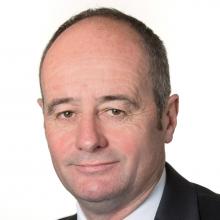
Age: 58
Occupation: Scientist
Question 1: Dunedin’s lack of status as a metro city has resulted in under-investment in the city. Dunedin is developing a modern integrated transport network.
But it is viewed through the lens of being a small city. As the Dunedin representative on the Regional Transport Committee, I have been successful in raising our profile and we are now seeing more investment in the city.
With this we will deliver the best integrated transport system in the country.
Question 2: I am seeking a return to council to complete the work of my first two terms. I have environmental and liveability goals I wish to continue working on. Specifically continuing our work towards zero waste and the delivery of an integrated transport system that achieves both environmental and economic goals. I represent the city on the Regional Transport Committee and have successfully advocated for additional transport funding through championing Dunedin’s nationally important status.
TRACEY PITA
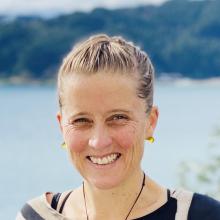
Age: 44
Occupation: Lifestyle coach
Question 1: Transport in a small city such as Dunedin, I believe, requires recognising the need for cars. The introduction of a system that rewards car-pooling could reduce the number of cars in the city.
While the bike lanes are great for cyclists on the flat of the city, they appear to be mainly utilised for recreation over daily transport. Buses are used. However, as reported lately, when there are issues they become quickly unreliable, leaving customers stranded.
Question 2: Being a voice for the people. My husband Watson Pita and I stand together for the Dunedin community. Spending the last 18-months advocating for those who felt they didn’t have a voice, we created a strong community for those who were ostracised and isolated. Utilising excellent communication skills and listening with empathy, I am able to transverse demographics to facilitate community discussion and action. I believe a voice for the people is needed in council.
LYNNETTE SCOTT
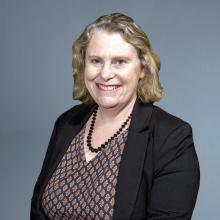
Age: 55
Occupation: Economist
Question 1: We need a transport network that creates an accessible city and can accommodate for future population growth. Maintaining the one-way system is essential, along with better parking for those who still need or want to drive a car. Improved public transport, both buses and the re-introduction of a commuter rail service to Mosgiel and Port Chalmers will help reduce congestion on the roads.
Question 2: I’m concerned about the projected debt levels and rates increases. I would like to see greater scrutiny of council expenditure. I oppose the Smooth Hill landfill. The funds set aside for this could be invested in cost-effective recycling technologies so we can reduce the amount of waste that goes into our landfill. I would like to see action on coastal erosion and am supportive of a trial re-introduction of the groynes at St Clair beach.
RANDAL SCOTT

Age: 48
Occupation: Teacher and mental health support worker
Question 1: Dunedin used to be a get-anywhere-in-10-minutes-city, but it’s not that way anymore. The best thing we can do to reduce gridlock is to get cars off the road by providing free public transport. It’s not always convenient, but people who are taking one for the team should get to travel around town for nothing. The Government should pay for this out of its climate change spending fund because it will reduce our greenhouse gas emissions.
Question 2: I want Dunedin to be a great small city for every resident. That will happen by providing secure housing for our most vulnerable people, work for everyone who wants it, fair water rates, and a safe and clean environment with improved recycling facilities. We should pursue development in keeping with our existing buildings and cater for a smaller number of high spending tourists. Quality infrastructure will improve our lives in preparing for an uncertain future.
DAVID SMITH
Has withdrawn from the campaign.
CALLUM STEELE
No response received before deadline.
VICK VEERA

Council: Dunedin City Council
Age: 43.
Occupation: Operations manager.
Question 1: Our current transport model is failing due to poor town planning and under investment.
Some great examples of small cities around the world are to have more frequent and reliable loop bus services but using smaller EV type to cater for off peak hours. We can’t solve the parking issues overnight, but we can create off town parking areas with pick up and drop off services. Innovative Bus App that's used for payments and tracking.
Question 2: The faith in the council has deteriorated, my goal is to re-engage and include people’s opinion on all decision-making process, control council's unnecessary spending, stop Three Waters asset handover, keep the one-way system as it is, address the housing crisis, support four-bin recycling, pragmatic solution to coastal erosion in St Kilda and Middle Beach, and promote our arts and live music through our under-utilised stadium. We can do this Dunedin.
ROB WAIDE
No response received before deadline.
STEVE WALKER

Age: 56
Occupation: Current full-time councillor
Question 1: Despite some of the exaggerated statements emanating from various quarters, compared to other cities Dunedin is a relatively easy place to commute, but not for some and particularly not for walkers and cyclists.
We need to focus on mode shift (public transport, walking and cycling) initiatives that provide modern 21st century alternatives for those asking for them, which ultimately leads to less congested roads for those who need or want to drive — it’s a win-win!
Question 2: As a current full-time councillor, my ongoing focus will be ensuring that council continues to invest in our entire community’s social, cultural, environmental and economic wellbeing.
Priorities: Zero-carbon by 2030. Protecting our unique biodiversity. Vibrant, people-focused city centres. Mode-shift — public transport, walking and cycling. Waste reduction — circular economy.
I’ll continue to practise what I preach by cycling daily, producing negligible household waste and advocating as Dunedin Wildlife Hospital chairperson for our endangered taonga species.
BRENT WEATHERALL

Age: 58
Occupation: Self-employed
Question 1: Dunedin residents should be able to access all parts of this city conveniently and effortlessly. "Buses/bikes are good and cars are bad" philosophies will destroy how our city flows. Council needs engagement with past and present local roading and transport experts to get Dunedin flowing. I will support a council that facilitates accessibility in whichever form of transport residents choose to travel, without enforcing an ideology on them.
Question 2: Council needs to work as a team to: Overhaul how this city spends money with basic sense, responsibility and conscience. Minimise the city’s debt burden for the ratepayer. Increase maintenance around our city (kill the weeds, cut the grass and fill the potholes). Improve the traffic flow. Improve parking. Improve all aspects of engagement between council, regional council and the community. Promote our eco-tourism and heritage and push to lengthen our airport runway.
ANDREW WHILEY
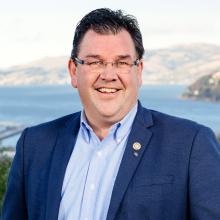
Age: 56
Occupation: N/A
Question 1: I have three goals. 1) Stronger connection building to co-governance of the buses with DCC and ORC so more effective services can be delivered to the community including school services. 2) Work with Otago University, polytechnic and major employers to create a prepaid bus pass. Increase income and deliver enhanced services. 3) Role out of more technology to ensure every bus user knows when the next bus is coming. Confidence of service is vital for increased bus use.
Question 2: Developing a clear long-term vision for the city so residents can have confidence in the future of the city. How is the city going to look in 10, 20 and 30-years time. Maintain the one-way highway system, more parking, support DCC ownership of Three Waters and work harder with developers to create more housing opportunities. Affordability to buy or rent a house is increasing fast as city population increases. Councillors need to work together for stronger leadership.












